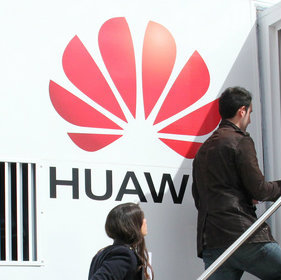Huawei 'rip and replace' price tag doubles to $2B amid coronavirus outbreak
The FCC's chairman has urged Congress to earmark $2 billion in the coronavirus relief package to pay US telecom operators to swap out Huawei and ZTE equipment with products from 'trusted' suppliers.

The FCC's chairman is asking Congress for $2 billion to fund a program that help operators replace Huawei's equipment in US networks. That figure is double the amount initially approved by President Trump earlier this month.
In a letter to Sen. John Kennedy (R-La.) dated March 14, FCC Chairman Ajit Pai requested $2 billion, plus $5 million in administration expenses, for the agency's "rip and replace" program for Huawei and ZTE equipment. Pai requested that the senator add the expense into the $2.2 trillion coronavirus stimulus bill that was passed by the Senate Wednesday. According to reports, the bill is expected to be passed by the House Friday and signed into law by President Trump immediately thereafter.
Importantly, the current version of the legislation does not allocate any money to the FCC for the Huawei rip and replace program. However, it does include $200 million for the agency to support telehealth and telemedicine services.
The FCC chairman argued to Sen. Kennedy that the $2 billion rip and replace program should be included in the coronavirus financial relief package because it would "stimulate US telecom companies to replace Huawei and ZTE equipment and service in their networks." He wrote that it would also "protect and make resilient essential telecom systems by replacing unsecured equipment."
Ballooning costs
The price tag attached to the rip and replace program has been steadily increasing during the past few months.
A group of lawmakers early last year proposed up to $700 million to pay US companies to swap their Huawei equipment with equipment from other "trusted" suppliers. But almost immediately, a report from the analysts at CoBank's Knowledge Exchange Division argued that wouldn't be enough. Subsequent legislation raised the total to $1 billion.
Earlier this year, some companies began to argue that even $1 billion wouldn't be enough.
Pai's request to Congress indicates his agency may well agree.
Trusted equipment
The US government officials have argued for years that equipment from Huawei and ZTE can be used by the Chinese government for espionage. While the companies have disagreed with those allegations, the issue has gained steam to the point that the vendors have been blocked from selling equipment to US companies, and legislation recently signed in to law requires US operators that have such equipment to rip it out and replace it.
However, the details of the rip and replace program remain unclear, including what equipment might be installed in place of gear from Huawei and ZTE. Already, vendors ranging from Nokia to Ericsson to Mavenir to COMSovereign are falling over themselves to convince regulators that they're the "trusted" vendor that can handle the job – and get all that cash.
— Mike Dano, Editorial Director, 5G & Mobile Strategies, Light Reading | @mikeddano
About the Author(s)
You May Also Like




_International_Software_Products.jpeg?width=300&auto=webp&quality=80&disable=upscale)







